Feed aggregator
Review of The River Has Roots by Amal El-Mohtar
When I first heard about The River Has Roots, I was simultaneously intrigued by it and hesitant to read it. The idea of a story about Faerie and sisters based on a murder ballad appealed to me, but my only previous experience with Amal El-Mohtar’s work was a sample from the novella she co-authored, This Is How You Lose the Time War—a book that for all its awards and accolades has now failed to draw me in and demand I […]
The post Review of The River Has Roots by Amal El-Mohtar first appeared on Fantasy Cafe.The Inheritance: Chapter 6 Part 1
Bonus points for correctly identifying the popular culture reference.

Drishya Chandran blinked her big brown eyes. On paper, she was twenty-one. To Elias, she looked about fifteen at most.
It’s not that the kids are getting younger; it’s that I’m getting older.
“I’m sorry,” Drishya said. “I honestly didn’t see anything.”
They had commandeered the Elmwood Public Library and through the glass window of the conference room Elias could see the gate looming like a dark hungry mouth, bathed in the glow of the floodlights. No matter how many lives they threw into it, it would never be enough. It was past one in the morning, and he was out of coffee.
“Walk me through it one more time,” he said.
“The drill head jammed,” Drishya said. “I showed it to Melissa. She said to go get the new one from the cart in the tunnel. I went to get it. The next thing I know Wagner is running out of the tunnel, and Melissa is behind him, and her face doesn’t look right. I’m like okay, I guess we are doing that now, so I turned around and ran to the gate. I heard an explosion behind us, so I didn’t look back. I didn’t even know London made it until I was out.”
“Why was the cart in the tunnel and not at the site?” Elias asked.
“It didn’t fit. The site slopes to the stream and there wasn’t a lot of flat ground, so we could only get three of the four carts in.” Drishya counted off on her fingers. “Cart One had the generator, lights, and first aid, so it had to come in. Carts Two and Three were for the ore. Adamantite is heavy, so we didn’t want to carry it too far. Cart Four with the spare parts had to live outside.”
“So there was adamantite at the site?” He’d read Leo’s notes of Melissa’s interview, but it seemed almost unbelievable that so much adamantite could exist in one place.
“Oh yes. That’s how my drill broke. Chipped off a chunk this big.” Drishya held her hands out as if lifting an invisible basketball.
“Was the adamantite in plain view?”
The miner shook her head. “No. Buried, and half of it underwater. It took the DeBRA about 10 minutes to find it. She had to mark it with paint for us.”
Was this why they were attacked? Was something protecting the ore?
Drishya sighed. “It’s awful, isn’t it? Everyone is dead.”
“It is, and they are,” Elias confirmed.
“I knew we would get a big bonus when we found the gold, and then the DeBRA came up with adamantite. I was so excited. I thought I could finally put a deposit on the house. My mom isn’t doing so well. I’ve got to get us out of the apartment, and I’m the only one working.”
Gold? What gold? “I’m sorry your mother is in bad health, and that you had to go through this trauma. You may want to see Dr. Park. He has a room set up downstairs.”
“I’m okay. I didn’t see any of it,” Drishya said. “I’ve only been working for 6 months. I didn’t even know people that well…”
He’d seen this before. Some people grieved when faced with death, others got angry, and some tried to disconnect themselves from what happened.
“I understand,” he said. “Still, it might be a good idea. You’ve lost colleagues in a sudden traumatic way. Things like that can fester.”
“I’ll think about it,” she said.
“So how much gold was there?”
“A lot. It was everywhere in the water, like rocks. We weren’t even drilling; we were pulling it out by hand. Nuggets the size of an apple. We ended up dumping like fifty pounds of it to make room for the adamantite, and we’d been only gathering it for about five minutes.”
“I see. I appreciate your help, Ms. Chandran. The guild is grateful for your assistance. Please get some rest.”
She got up and paused. “You are a lot less scary than I thought you would be.”
“That’s good to hear.”
“Just so you know, Wagner told me not to talk to you.”
Elias raised his eyebrows. “Oh?”
“He said that miners don’t go into the breaches with guildmasters. They go with escort captains. He said it was something to keep in mind.”
“Thank you for your honesty.”
She nodded and walked out.
Elias pulled up the interview notes on his tablet. Neither Melissa nor London said anything about the gold. Malcolm wouldn’t have seen the adamantite, but gold was an entirely different beast.
Was it just gold? Was that it? He’d been wracking his brain, trying to find the reason for the lapse in procedure, having this back and forth with Leo, wondering what he was missing, and all this time, the answer was depressingly simple. Well, no shit, Sherlock, here it is. Greed.
He had put so many regulations and checks in place, and somehow greed always won. He was so fucking tired. Things were much simpler in the breach. The enemy was in front, the support was behind, and he didn’t have to wade through the swamp of human failings. He couldn’t wait to get out of this conference room and into his armor. He had a powerful urge to slice something with his sword.
Leo appeared in the open doorway like a wraith manifesting, met his gaze, and stepped back.
“Come inside and shut the door,” Elias growled.
Leo came in and closed the door behind him.
“Sit.”
Leo sat.
“Why do baby miners think I’m scary?”
“Because you are, sir. Most people find a man who can cut a car in a half with a single strike and then throw the pieces at you frightening.”
“Hmm.”
“Also we offer the highest pay and the best benefits among the top tier guilds, and you are their boss who holds their livelihood in his gauntleted fingers…”
Elias raised his hand. “Did you know there was gold at the mining site?”
Leo’s eyes flashed with white. “I did not.”
“Apparently it was in the water. Nuggets the size of apples. Finally, I know something before you do.”
“Congratulations, sir.”
Elias let that go, pulled up the map of the site on his tablet, and pointed at the three tunnels, each carrying a current of water that merged into a single stream. “Gold washes downstream.”
“Malcolm left the tunnels open because he wanted to maximize the profit from the site.” Leo’s face snapped into a hard flat mask. “He must’ve expected that once they cleared the site, they would gather more gold upstream.
“Remind me, how much did Malcolm make last year?”
“Seven million.”
“I want to know why gold got him so excited that he risked nineteen lives by leaving the tunnels unsecured.”
“Nineteen?” Leo frowned. “The mining crew, the escort, the DeBRA…”
“And the dog.”
“Oh.”
“Malcolm took a significant risk. That’s not just greed. That’s desperation. How are his finances?”
“Squeaky clean as of the last audit, which was two months ago. Credit score of 810, low debt to assets, less than 10K owed on credit cards. I’m following up on a couple of things. We should know more in a few hours. Do you want me to get Wagner in to talk to you?”
“He won’t tell me anything. Wagner is forty-nine years old. He was a coal miner before the gates appeared, and we are his third guild. He’s used to getting screwed over by his bosses.”
“So, he developed an adversarial relationship with us despite fair treatment,” Leo said. “Seems counterintuitive.”
“It doesn’t matter what kind of treatment he gets. He’s cooked. He doesn’t trust us, he will never trust us, and he will always resent us no matter how many benefits he gets.”
“That’s not even logical.”
“It isn’t. It’s an ingrained emotional response. Trust me, we won’t get anything out of him. I’d like you to reinterview Melissa instead. As you said, I’m scary, so she may do better with you. Don’t be confrontational. Be sympathetic and understanding. Make it us against the government: we need to tell the DDC something and we need her help to make them go away. Imply that her cooperation will be remembered and appreciated.”
Leo nodded. “Should I bring up the families?”
Elias shook his head. “Normally the foreman would be the last to get out, just before the escorts. She was at the head of the pack. Either she was incredibly lucky, or she abandoned her crew and ran for her life. Either way, there is guilt there. If you lean too hard on it, she might shut down. Go with ‘you were just doing your job, and we don’t blame you for surviving’ instead. Get her a coffee, get some cookies, interview her in a comfortable setting, and see if she thaws and starts talking. If she goes off on a tangent, let her. Don’t rush. You are her friend; you are there to listen.”
Leo nodded. “Will do.”
“Did Haze get the children?”
“Yes. They’ve just arrived at HQ. I still don’t think this is wise.”
Twenty-eight people died in the breach. Fourteen members of the assault crew, nine miners, four escorts, and Adaline Moore. Twelve of the deceased left behind minor children. Of all of them, only Adaline Moore’s kids had no immediate family to take care of them.
The media devoured any news related to the guilds and gates, and the death of a prominent DeBRA would set off fireworks. Once the news broke, Adaline’s children would become the center of a news cycle. They would be overwhelmed, used, wrung dry for the sake of the cheap emotional punch, and then abandoned to their grief. If they were lucky, the country would forget they existed. If they were unlucky, someone would take note of two vulnerable orphans with a million-dollar life insurance payout.
“I will not allow Adaline’s children to be fed to the media circus,” Elias said. “They are safer at the Guild HQ. DDC hasn’t made any notifications yet, but we both know it will get out. I don’t need some asshole showing up at their door, sticking a microphone into their faces, and asking how they feel about their mother dying. All Haze told them was that Adaline is missing in the breach. They will find out what happened from me, personally.”
He would take care of that in the morning.
“Adaline Moore would have made provisions,” Leo said.
“I’m sure she did. Until we know what they are, we will take care of it.”
“This will be seen as Cold Chaos controlling access to the children because we have something to hide. We are trying to minimize the media’s attention, but they love conspiracies. In an effort to keep the story small, we may end up making it bigger.”
“That’s fine. If they want to paint us as the villain of that story, let them. We will survive. We are the third largest guild in the country.”
Leo sighed quietly.
“I called Felicia,” Elias told him.
Felicia Terrell was a powerhouse attorney, and she specialized in guild-related litigation. He spoke to her two hours ago. She called him a marshmallow and promised to show up first thing in the morning. The children would be well protected from everyone, including Cold Chaos.
Elias leaned back. He was so over it. As soon as he hammered the assault team together, he would enter the gate. He couldn’t wait to get out of this conference room. There was no politics in the breach.
Leo was still sitting in the chair. Some other problem must’ve reared its ugly head.
“Lay it on me,” Elias said.
“We can’t find Jackson.”
“What do you mean, you can’t find him?”
“He was supposed to fly out of Tokyo twenty minutes ago. He didn’t make it to the plane, and he isn’t answering his phone. I’m on it.”
Jackson was arguably the best healer in the US. He didn’t drink, he didn’t do drugs, and his biggest vice was collecting expensive bonsai. The man did not go AWOL. Jackson was always where he was supposed to be. He was calm, competent, powerful, and respected wherever he went, because he did things like walk into other guilds’ gates and rescue their assault teams from disaster when asked. Nothing could happen to Jackson.
“Do whatever you have to do, but find him, Leo.”
The XO nodded. “I will.”
The post The Inheritance: Chapter 6 Part 1 first appeared on ILONA ANDREWS.
The Wild Road — cover
Spotlight on “Midnight at the Cinema Palace” by Christopher Tradowsky
Midnight at the Cinema Palace is a tender, exuberant debut novel about a young man…
The post Spotlight on “Midnight at the Cinema Palace” by Christopher Tradowsky appeared first on LitStack.
Monday Meows
One of these things is not like the others
One of these things just isn’t the same
One of these things is not like the others
One of these things just doesn’t belong
Can you guess which one before we finish this song?
The Public Life of Sherlock Holmes: 52 Weeks: 52 Sherlock Holmes Novels – Kurland’s The Infernal Device
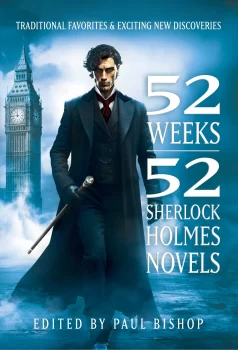 So, Paul Bishop is a friend of mine, and he wrote the very first post in Black Gate’s award-nominated Discovering Robert E. Howard. He talked about Howard’s boxing stories. Before those Pulps dried up, Howard wrote prolifically for them, with Sailor Steve Costigan his most popular creation.
So, Paul Bishop is a friend of mine, and he wrote the very first post in Black Gate’s award-nominated Discovering Robert E. Howard. He talked about Howard’s boxing stories. Before those Pulps dried up, Howard wrote prolifically for them, with Sailor Steve Costigan his most popular creation.
Paul is a major Westerns guy, and with Scott Harris, he put together 52 Weeks: 52 Western Novels, in which a slew of folks wrote about their favorite Westerns. It’s a cool format, and 52 Weeks: 52 Western Movies, and 52 Weeks: 52 TV Westerns, followed. The ’52’ number flows nicely with reading one a week, right? I have read the Novels, and Movies, books, and I think they’re cool for Westerns fans.
Paul reached out to me last year, and asked if I was interested in contributing a chapter to a 52 Weeks: 52 Sherlock Holmes Novels, project. Write about a non-Doyle pastiche? Heck yeah!!! In the end, I wrote four of them, so I’ve got a good 7.6% of the reviews. I covered Hugh Ashton’s The Death of Cardinal Tosca; John Gardner’s The Return of Moriarty; Michael Kurland’s The Infernal Device: and Frank Thomas’ Sherlock Holmes & The Sacred Sword.
We all followed the same format; well, we were supposed to. I know I did. So, to help promote this cool book, which came out last Friday (paperback and digital), here’s the first of the four I wrote. I’ve long been a fan of Kurland’s Moriarty books, and this is where it all started for me with him. Enjoy!
THE INFERNAL DEVICE
Michael Kurland
Published 1978
Contributor – Bob Byrne
BOOK FACTS
 Version 1.0.0
Version 1.0.0
James Moriarty is THE great villain of the Canon. Until financial considerations caused Arthur Conan Doyle to do some revisionist history, Moriarty was the man who killed Sherlock Holmes. The Professor has become a popular character in Holmes pastiches, with novels and entire short story collections dedicated to him.
It’s no surprise that it’s fun to flesh out the character: There are untold possibilities. Elsewhere in this book, I wrote about John Gardner’s The Return of Moriarty, with the professor being a Victorian Era Mafia Don, with a crime family doing his bidding.
Michael Kurland’s Moriarty is a scientist, always looking to solve nature’s mysteries. He undertakes criminal enterprises to pay the bills, as it were. He doesn’t search out crimes – people come to him and he decides whether or not to take on the job. Moriarty isn’t a spider at the center of a web of all London’s crimes, though Sherlock Holmes is (wrongly) obsessed with him. We learn that Moriarty was Holmes’ math tutor, but their different paths set Holmes after him.
The stories are told from the perspective of an American journalist named Barnett, who Moriarty frees from a Turkish prison (he was framed for murder) in exchange for two years of employment. Barnett runs a news service, selling local British and European news to American newspapers. The information he gathers is useful in his role as Moriarty’s assistant.
Holmes unsuccessfully tries to pin a kidnapping on Moriarty, but eventually teams up with him to stop an attempt on the Queen’s life. The ‘infernal device’ is a prototype weapon of destruction, and hot air balloons play a key role. Reminds of me of the recurring theme of ‘The coming thing’ from The Adventures of Brisco County, Jr..
Kurland writes a good Holmes, and his Moriarty is an interesting character. No saint, but not a devil, either. The follow-up novel, Death by Gaslight, is at least as good, and the Moriarty series got off to strong start.
AUTHOR FACTS
Kurland has written five Moriarty books, as well as four novella/short stories. He also wrote two Lord Darcy novels after the original author, Randall Garrett, passed away. Kurland is active on Facebook.
BEYOND THE FACTS
Before the turn of the century, Holmes pastiches were not easily available, like they are now. Self-publishing, and online booksellers, weren’t common. The Doyle Estate had more influence/rights over the Holmes copyright. The Infernal Device (1978) was followed in 1982 by Death by Gaslight. They were hard to find after the initial printing, though. In 2001, Kurland wrote a new short story, “The Paradol Paradox,” and his three Moriarty titles were issued as one book: The Infernal Device and Others (A Professor Moriarty Omnibus). That same year, a new novel, The Great Game, came out. Kurland’s Moriarty stories have been readily available since then.
FUN FACT
One of the great joys of being a Sherlockian is speculating on the ‘untold tales’ which Watson mentions. In “A Scandal in Bohemia,” he tells that Holmes had been summoned to Odessa (Russia) ‘in the case of the Trepoff murder.’ Trepoff is the villain in this first Moriarty tale.
MOVIE FACTS
There have been no on-screen (or radio, that I’m aware of) adaptations of Kurland’s books. Moriarty, of course, has appeared many, many times. Ernest Maupain played the Professor opposite William Gillette’s Holmes when the great actor filmed his famous play, in 1916. I like Eric Porter, in Jeremy Brett’s Granada series. Lyn Harding played the two great villains of the Holmes Canon. He was twice a Moriarty, facing off against Arthur Wontner’s classic Holmes. But before that, on screen and stage, he was the terrible Grimesby Rylott (Raymond Massey, Jeremy Brett’s future father-in-law, was Holmes on screen), in The Speckled Band.
FAVORITE QUOTE
“It’s hard, almost impossible, properly to verbalize the complicated and complex chain of interrelated data that allows a genius to arrive at the correct inductive answer,” Moriarty said.

Bob Byrne’s ‘A (Black) Gat in the Hand’ made its Black Gate debut in 2018 and has returned every summer since.
His ‘The Public Life of Sherlock Holmes’ column ran every Monday morning at Black Gate from March, 2014 through March, 2017. And he irregularly posts on Rex Stout’s gargantuan detective in ‘Nero Wolfe’s Brownstone.’ He is a member of the Praed Street Irregulars, founded www.SolarPons.com (the only website dedicated to the ‘Sherlock Holmes of Praed Street’).
He organized Black Gate’s award-nominated ‘Discovering Robert E. Howard’ series, as well as the award-winning ‘Hither Came Conan’ series. Which is now part of THE Definitive guide to Conan. He also organized 2023’s ‘Talking Tolkien.’
He has contributed stories to The MX Book of New Sherlock Holmes Stories — Parts III, IV, V, VI, XXI, and XXXIII.
He has written introductions for Steeger Books, and appeared in several magazines, including Black Mask, Sherlock Holmes Mystery Magazine, The Strand Magazine, and Sherlock Magazine.
You can definitely ‘experience the Bobness’ at Jason Waltz’s ’24? in 42′ podcast.
Multiverse 8 Snippet 1
Sitrep:
I sent MV8 off to Rea on Monday. She got it back to me yesterday, and I did the edits and then sent it off to Goodlifeguide for final formatting. There are... 5 stories? Two new original science fiction, 2 Federation stories, and 1 PRI story.
We'll see if I get it back before Memorial Day. Fingers crossed.
In other news, I've spent the past week running 8 of my old covers through SeaArt to enhance them. I am wrapping up the last one but I'm torn. I'm not sure if I should go with the enhanced original design or one of Bast.
I'll post the new covers in a later post.
Anyway, on to the snippet!
Normal 0 false false false EN-US X-NONE X-NONE MicrosoftInternetExplorer4 /* Style Definitions */ table.MsoNormalTable {mso-style-name:"Table Normal"; mso-tstyle-rowband-size:0; mso-tstyle-colband-size:0; mso-style-noshow:yes; mso-style-priority:99; mso-style-qformat:yes; mso-style-parent:""; mso-padding-alt:0in 5.4pt 0in 5.4pt; mso-para-margin:0in; mso-para-margin-bottom:.0001pt; mso-pagination:widow-orphan; font-size:10.0pt; font-family:"Times New Roman","serif";}
Invasion
Yep, another alien invasion story. But this one has been kicking around for a while. I think it came up after seeing some of the invasion stories where humanity looses initially? Like Falling Skies and such. Of course, I have to put my own twist on things. :)
Glen Aurellius was out hunting but aware it wasn’t a good time for it. Most of the animals were active at dawn and dusk. But he had to hunt; he only had so much food on him. His backpack was filled with odds and ends to help him survive but was light on fresh food.
He really needed to stop for a while and try to smoke whatever he caught so it would last longer. Either that or trade the excess again or give it up rather than have another survivor try to rob him of it. It wasn’t worth the fight.
He heard some motion in the ferns up ahead and paused. He knelt slowly, feeling the ache in his knees from the motion, but he ignored it as he pulled his bow up and notched an arrow.
The animal that came out of the bush was a feral pig, maybe six months to a year old. It wasn’t very bright; it went for the pile of nuts and berries he’d left out as bait.
He lined up his hunting arrow and made certain he had a solid shot before he let loose. The arrow swished and hit the pig in the shoulder. It squealed in surprise and tried to run but stumbled.
He snapped another arrow up and shot the beast before it got too far. He wasn’t in the mood to chase it. That arrow hit the head though and had a point not a broad head. It didn’t have the power to penetrate the skull. It stuck out like one of those spears used to torment fighting bulls.
He didn’t think of that much as he pulled a third arrow and shot it. That caught the pig in the ass. It stumbled and then fell as its movements and the broad head arrow tore something vital within it. It finally fell gasping into the ferns and dirt.
Glen went over and used his bowie knife to slit the throat as the pig twitched. He didn’t want it to come back to life. He knew he was being stupid; you were supposed to wait until the kill was dead but he didn’t feel safe.
He watched the blood flow as he pulled his arrows and examined them. He flicked a bit of gore off one and frowned at the tip of the second arrow. The metal was okay but the arrow wood behind it had a slight crack. That’s what he got for using a point and not using composite arrows.
He shook his head and cleaned the tip on the bristle hide of the fallen beast. He was going to eat well tonight even though he wasn’t too fond of pork. Oh, bacon was fine, but ham was a bit greasy.
Still, food was food.
He put the arrows in the quiver and set it on top of his pack and the bow and then got to work. He pulled a camping rope out and tossed one end over the tree limb above. He knotted the other around a rear leg and then yanked it up. Once the pig was jacked up, he tied off the rope and gutted it.
He was working fast and dirty, there was no telling what was in the area. A bear, wolverine, big cat, or anything else. The smell of blood would attract other predators soon enough. The flies would get fierce too in the early summer heat.
He flicked a fly away and then began to portion the pig up. It was only eighty pounds or so, sixty with the offal unloaded. He left the head and some of the bones behind. He wrapped the rest in a piece of plastic and then tested it as he got up.
At forty-two he thought he could handle the pack and meat but it was not going to be a pleasant haul. He was going to need to find shelter soon as well as some firewood. Once he was somewhere dependable, he could break the meat down further.
Scavengers were welcome to the leftovers or ex-wives, whichever came first he thought in amusement.
He had been married and divorced twice. He’d been something of a JOAT, bouncing around with careers. He’d never really found his calling. His dreams of being in the military had died when he’d been injured in a football game. From there he’d moved on to a few other career paths. He had loved science fiction though, which was why he’d ended up on the west coast.
Now he was trying to make it back to the east coast to the old family farm, if it even existed. Picking his way on foot was a bitch though. There were no vehicles running; anyone stupid enough to get one going usually ended up as target practice for the bastards in orbit.
Involuntarily, he glanced to the sky. It was not quite noon; he had plenty of time to find shelter.
He heard a commotion ahead of him and instinctively paused and then turned. He wasn’t certain what it was but he didn’t want to encounter it with so much weight and his primary weapons locked down behind him. At the moment, he had his machete and knife available.
He walked around a big tree but then paused and slowly put his hands up at the sight of an alien Centaur standing there holding a rifle. A human in camo was standing next to him.
“Well, what do we have here?” the guy said. “I didn’t know we ordered take out, but I think we’ll take it to go,” the guy said.
Glen had a sinking heart. The sounds of something moving in the brush intensified. He turned his head slightly and saw another Centaur charge up and then stop. It snorted at him. It was holding a rifle in its arms casually.
“Um, hi, guys?” Glen said.
The other human snorted. “I believe lunch is served,” he said as he indicated that Glen should unload.
Glen sighed and hoped it was just a robbery.
~~~*~~~
Belated Movie Review #9: Corey Feldman’s The Birthday
The Birthday (Arcadia Motion Pictures, November 10, 2006)
What are you doing right now? Whatever it is, stop it. Stop it and watch the Corey Feldmen vehicle The Birthday. Watch it. Right! Damn! Now!
“Woah, Simmons,” you may be saying to yourself. “Where’s the fire? What’s the rush?”
The rush is twofold. Fold First — while this is a belated movie review, it isn’t my fault that it is so late! We are lucky that this move is viewable at all. Forces, dark forces, have tried to keep The Birthday down, to keep you, the peoples, from seeing it.
Second Fold. How can I say this… I’m a man of a certain age, I don’t usually get fired up about movies anymore. Some of my generation get bees in their bonnets and burrs ‘neath their saddles with remakes and reboots and whatever. Myself? I have a very zen-like attitude toward the whole thing. Hollywood made movies for me for like 40 years. It would be poor form to ask for more.
That said, in the early 90s it seemed that Hollywood was pulling movies straight from my subconscious. Robert Sarandon starring in The Resurrected, and the Fred Ward powerhouse To Cast A Deadly Spell. The former being a stab at filming Lovecraft’s “The Case of Charles Dexter Ward,” the second a Lovecraftian 40s noir comedy — yes, please! And I’m not casting any shade at its sequel, Dennis Hopper and Julian Sands’ Witchhunt. My friends, Tremors was like putting a quarter in a slot machine and winning $100!
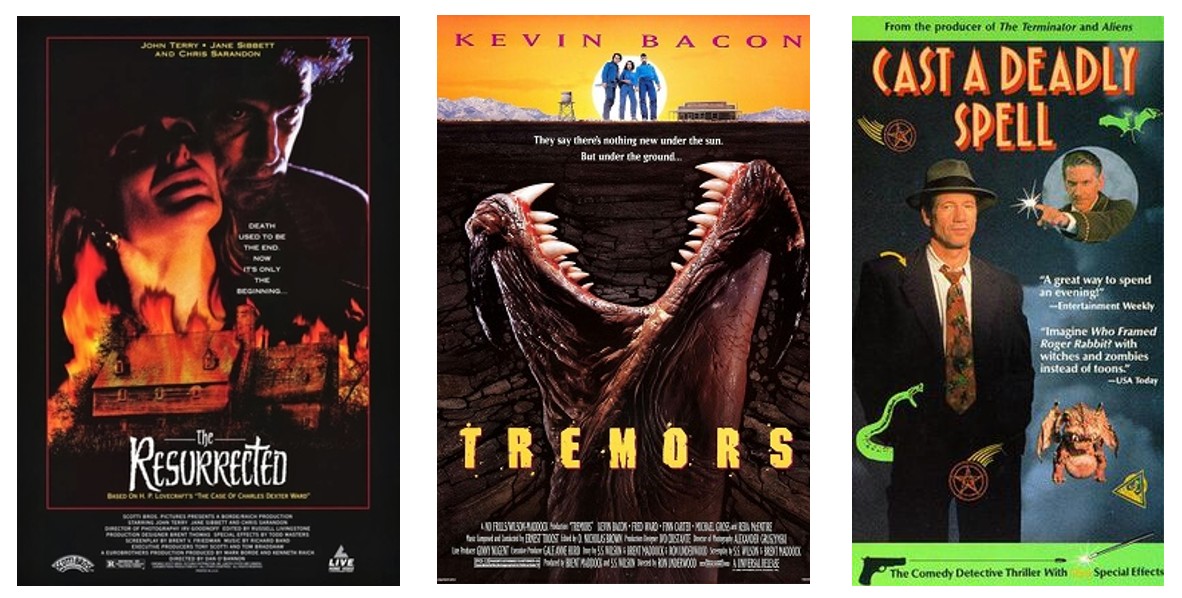 Another Holy Trinity!
Another Holy Trinity!
The Birthday falls into that kind of thing. A guy walks into the wrong damn place at the wrong damn time and things spiral out of hand. Way out of hand.
Feldman’s Norman Forrest is a decent guy, but he’s a schlub: nervous, nasal-y, and he’s trying his best to put on a brave face at his girlfriend’s father’s birthday party. These are not his people; they are wealthy (her father owns a string of hotels — including the venue for the party), his girlfriend has just gotten back from a trip to Europe — a long one it would appear.
Norman is trying to make his feelings for her known, but he’s constantly getting sidetracked. Last minute party issues, the fact some of his high school friends are having a corporate party on another floor, and then, well, there is something really weird going on in the background of the hotel. The wait staff, the cooks, something, several somethings, are going on.
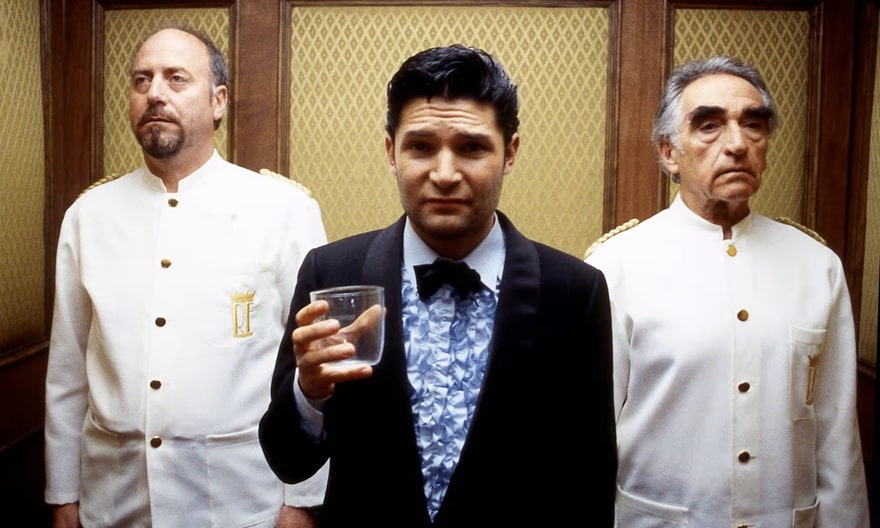 There’s something weird going on in the hotel
There’s something weird going on in the hotel
Cults? Secret Agencies? Murder in the sub-basement? A hero needs to step forth, and lord help us, the only guy who even matches that description is certainly not Norman Forrest. The hero that steps forth is Theodore, who claims to a secret agent, the point of the spear of a… well, a counter-cult maybe? But he can’t do much on his own and Lord help us, the only person he can rely on is Norman Forrest. But then, Theodore may be so crazy that in reality he’s the real threat.
Norman is a lot of things, but he’s not a fool. He’s open minded enough to ask questions, but not so open-minded that his brain’s gonna fall out, or that he’s going to let someone fill it with nonsense. But he’s in one of those situations where, by the time you get the proof you really need, it may well be too late.
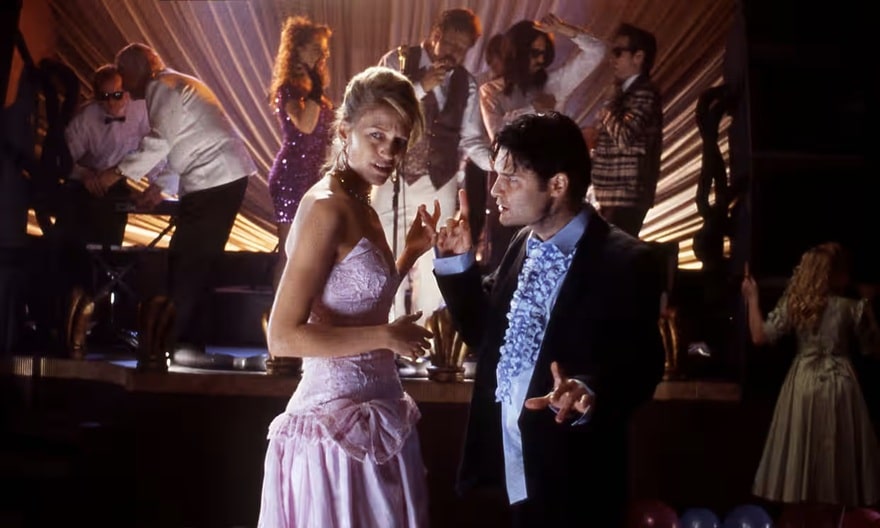 Erica Prior and Corey Feldman in The Birthday
Erica Prior and Corey Feldman in The Birthday
I only heard about the movie because one of my lefty-liberal websites had an interview with Feldman discussing it:
That is what that experience is with Norman. He has his high school buddy [Vince] around and he remembers being a kid and talking about girls in the locker room. There was a time when Norman wasn’t so neurotic. But maybe he also felt he wasn’t the best athlete and didn’t fit in because he didn’t like taking a shower with all the guys. I put him back in his school days whenever he interacted with his friend Vince. Juxtaposing that with this Indiana Jones character, Theodore, who may be a kook or savior. Is Theodore out of his mind and wandering in here with this fantasy, or is he really there because there is something going on, and this is Norman’s calling? Is Norman going to warn everyone there’s a crazy person running around the hotel, or is he going to believe this guy and take his gun and go on this adventure too? There is a whole side Norman develops that he didn’t know existed.
The movie is claustrophobic and at times muddy, but then if you’ve ever been stuck in a building with multiple parties and conflicting goals, you know that it can feel tight and muddled.
Check it out!
Adrian Simmons is an editor for Heroic Fantasy Quarterly, check out their Best-of Volume 4 Anthology, or support them on Patreon!
“The Ashtrays are Full and the Glasses are Empty” by Kirsten Mickelwait
The Ashtrays are Full and the Glasses are Empty is a star-studded novel based on…
The post “The Ashtrays are Full and the Glasses are Empty” by Kirsten Mickelwait appeared first on LitStack.
Tubi Dive, Part VI
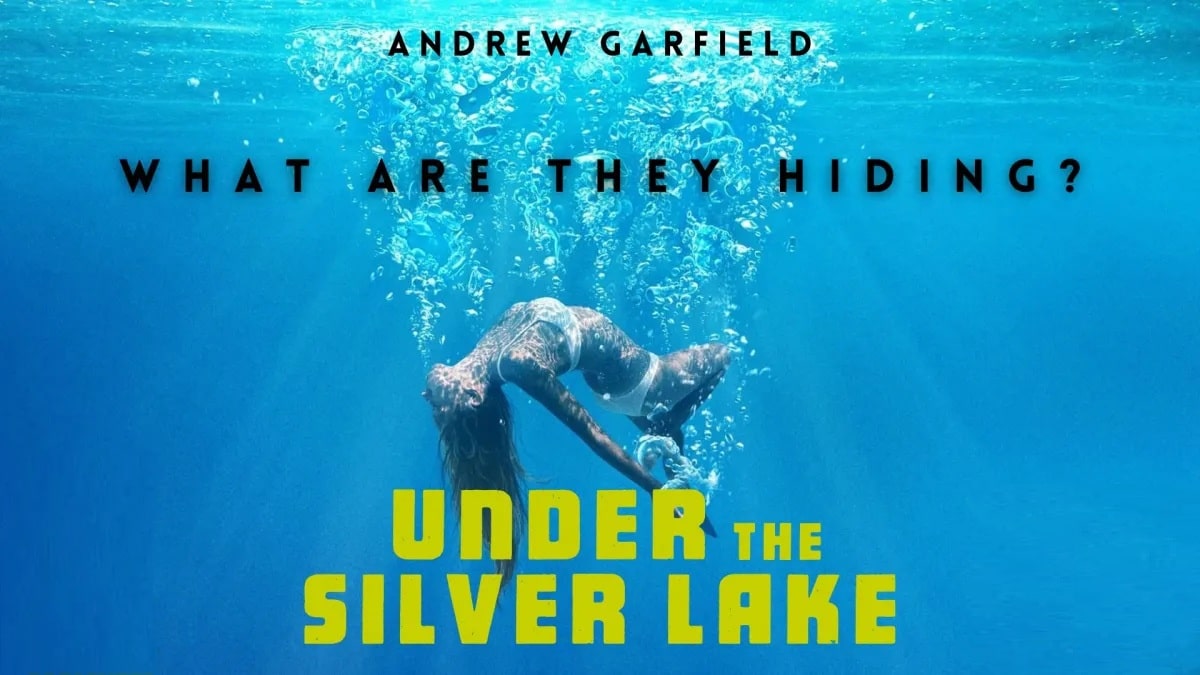 Under the Silver Lake (A24, April 19, 2019)
Under the Silver Lake (A24, April 19, 2019)
50 films that I dug up on Tubi.
Enjoy!
Under the Silver Lake (2018)Just in case you’re getting the wrong impression, Tubi isn’t all hidden schlock from around the world, there’s actually some proper* movies on there too.
Under the Silver Lake is the follow-up film from It Follows director David Robert Mitchell, and it seems the suits loved his horror film so much that they gave him free rein to do whatever he wanted to do.
What Mitchell wanted to do was make a two-hour, surreal, ‘slacker-noir’ type mystery film, with plenty of sex, violence, conspiracy theories and Andrew Garfield’s bottom.
I’m acutely aware that this is one of those films that sharply divides its audience. Some will bemoan the two hours they just lost on something they don’t understand, while others will wallow in its dreamlike narrative and unhinged tangents. I loved it.
Garfield plays a 30-something man who sits around doing nothing except smoke and watch his topless neighbour feed her parrots. When he falls for another neighbour his life is turned upside down, and leads him on a wild trail of hobo codes, murder, mysterious maps, secret codes, the truth behind pop culture, an urban legend, and a possible dog killer. Garfield is excellent as he drifts in and out of every scenario, looking increasingly worn down with each new revelation, and the supporting cast (mostly made up of attractive women there to feed his pervy addictions) are all great.
This was one of those films that drew me in and carried me along — I’ve seen comparisons to Mulholland Drive, but for me it felt like watching Mystery Train or Exotica for the first time.
Wonderful stuff.
10/10
*Proper to some. Everything I watch on there is proper.
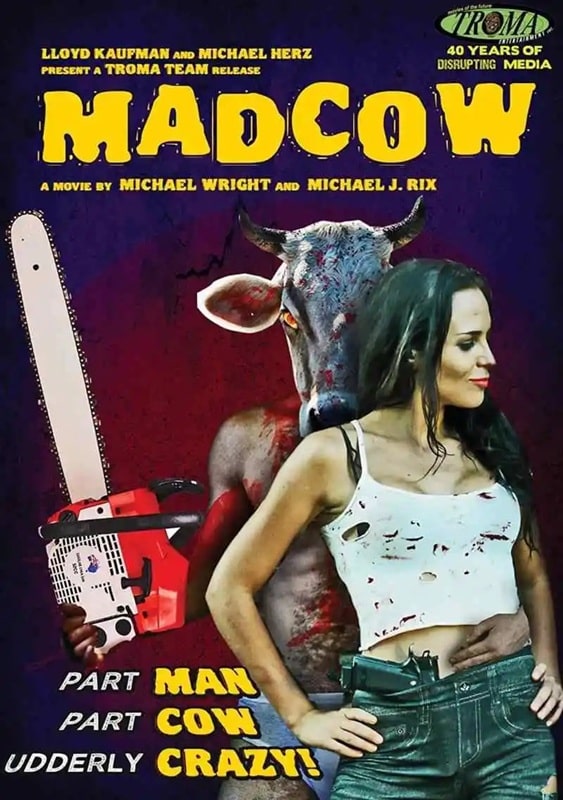
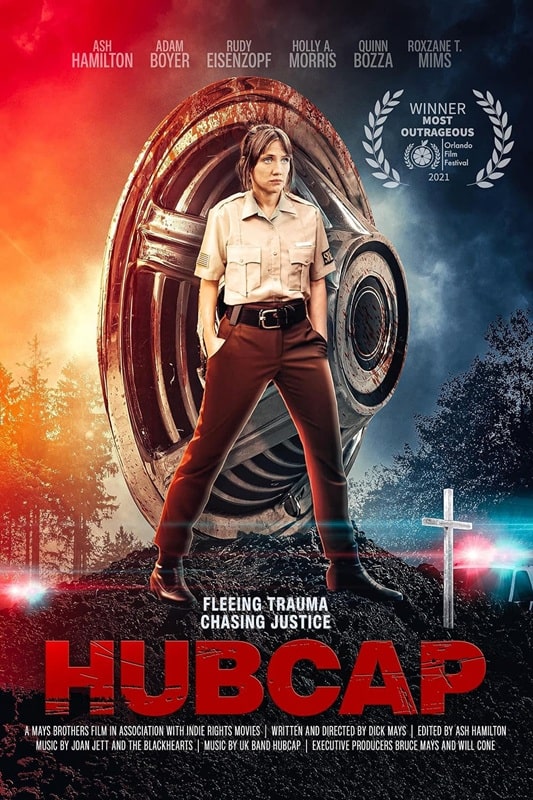
Mad Cow (Troma Entertainment, 2010) and Hubcap (Hubcap Film, 2021)
Watched a couple of sensible films recently, so I had to find a palate cleanser, and a Troma film usually does the trick.
Not strictly a Troma production (this was made by Funny How Films), Mad Cow was shot on a shoestring budget in 12 days (it shows), and is billed as more of a comedy than a horror film.
The story, for what it’s worth, concerns a scientist who transplants a cow’s head onto a human body. Said beastie then grabs a chainsaw and hilarity ensues. Actually, no it doesn’t. The deeply self-referential script is childish at best, deeply homophobic at worst, and I think I laughed twice at the Zucker Brothers-lite attempt at humor.
The funniest part might have been when I recognized most of the music as being stuff I had used myself for my student films, and when Kevin MacLeod’s name popped up in the end credits the film got a third titter out of me. So well done, I guess?
4/10
Hubcap (2021)Hoping for a spiritual successor to Quentin Dupieux’s Rubber (which I love), I settled down for this slice of road rage, and soon got, ahem, tired.
It’s a story of abusive relationships, PTSD, and political shenanigans, all tied together by a sentient hubcap possessed by the vengeful spirit of a war veteran.
What could have been highly silly, and somewhat enjoyable, becomes a bit of a slog from the midpoint once the main baddie has been dispatched and the hubcap stops its killing spree.
Oh well, plenty more fish* in the sea**.
4/10
* daft and gory films
** on Tubi
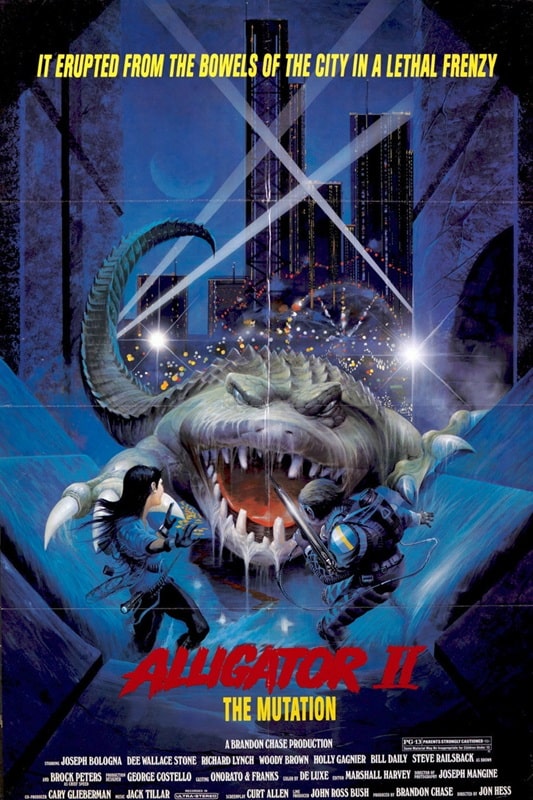

Alligator 2: The Mutation (New Line Cinema, June 5, 1991) and Vampire Clay (King Records, 2017)
Now then, I made a soft and slow rule that all the films I do these rubbish reviews for are first time watches, and yet I really think I’ve seen this one before. However, all I have is a sketchy memory of Richard Lynch in an underground alligator nest, so I can only assume that I caught a snippet one day on TV, or was very drunk at the time. Either way, here we are.
The first Alligator is awesome, but this one comes nowhere near to recapturing that magic. Instead we get another Jaws rehash with one-dimensional characters and dull kills. Joe Bologna is fine as the spiky detective who ain’t gonna follow the rules, but he’s no Robert Forster, and it’s fun to see Dee Wallace and Steve Railsback. The titular beastie is hardly a mutation though (just larger than normal).
They keep it light-hearted and there’s a couple of fun set pieces, but on the whole it’s a bit soggy.
5/10
Vampire Clay (2017)This is the feature-length debut of Sôichi Umezawa, who was responsible for the stop-motion insanity that was ‘Y’ in The ABCs of Death, so naturally I was quite excited.
The premise is great — a lump of clay is possessed by a disgruntled artist, which then goes on a blood-sucking spree when resurrected by an art student. The clay just needs moisture, any moisture, to reconstitute itself, and it dispatches art students and a hamster in a variety of slippery ways. Lurking in the background of this nuttiness is a commentary on modern art attitudes, a smattering of jealousy, and a dash of redemption, but we didn’t come here for drama and lectures. We came here for vampire clay.
Unfortunately, Umezawa is a way better short-form director, because this was unforgivably dull. The animatronic rubber and stop-mo effects were plentiful, but lit and shot so badly that they had no real impact, which was a pity. He does allow himself a gloopy animated sequence at the end (which really reminded me of a film I made about earwax a while ago), and the final clay creature is terrifyingly cute, but I was ultimately a little disappointed at what might have been. Oh well.
5/10
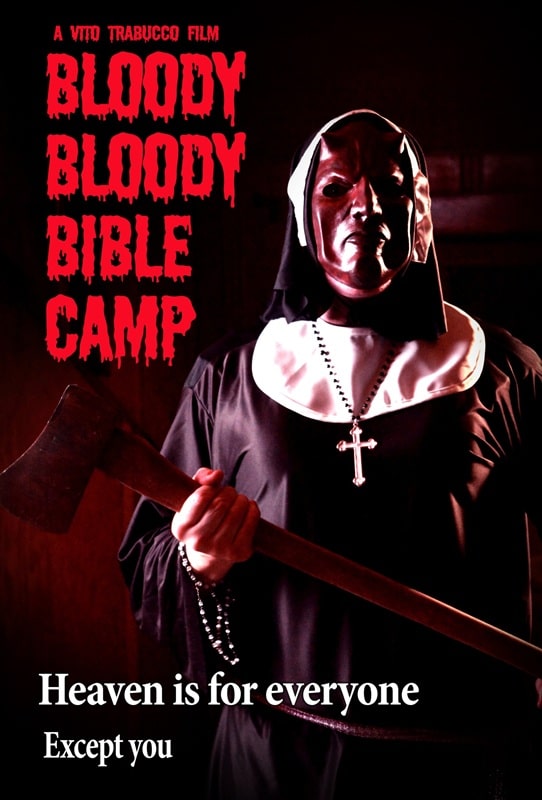

Bloody Bloody Bible Camp (Maltauro Entertainment, May 5, 2012) and
Decampitated (Troma Entertainment, 1998)
It’s 1977 (we know this because the characters are talking about Star Wars, Smokey and the Bandit, and the death of Elvis, all while sporting mustaches and/or short shorts), and the horniest bunch of Christians to ever walk God’s green earth are figuring out how to shag each other without upsetting the big man. Luckily, all this tediousness is put to a stop by a killer nun with a dagger crucifix.
Flash forward to 1984, and a new group of horny Christians are on their way to the same camp, led by ‘Father Cummings’, played by Phantasm‘s Reggie Bannister with some seriously dyed hair. As his name suggests, this isn’t as high-brow as you might expect (the mad nun’s name is Sister Chopper), and the filmmakers not only managed to adhere to the fodder-tropes for the characters, but also managed to make them hugely unlikeable.
There’s actually the germ of a decent slasher movie lost in here, but it is squandered in a maelstrom of unfunny dick jokes and a smorgasbord of hugely offensive moments, ranging from homophobic and transvestite ‘gags’, to anti-Semitism and sexual abuse. A shame really, as this has a fun (if a little hackneyed) premise. By the way, Ron Jeremy plays Jesus. JFC.
4/10
Decampitated (1998)Keeping with the campsite slasher theme, I decided to take a look at another Troma-backed effort, this one directed by Matt Cunningham. I thought I knew what I was in for after the excellent opening (but I was wrong).
The film starts with a woman fleeing for her life through the woods as she is pursued by a hunter wearing an apiary hood. She steps on a bear trap and saws her own foot off to hobble on her way. Then she steps on another trap and cuts the other foot off before dragging herself through the trees. Unfortunately, she puts her hand in a third trap and saws that off too. When her last limb is trapped, the hunter catches up to her and finishes her off. It’s absurd, mean and played for laughs, and I thought the tone would remain the same.
Sadly, the resulting film (unlikeable youths crash car, try to survive hunter) is so desperately unfunny, horribly shot (an over-reliance on fish-eye lenses) and horrendously over-acted in an effort to be ‘wacky’, that the whole thing soon becomes a chore. Plus, for the second film in a row, there is some major transvestite-bashing going on — what’s with these films? A smattering of fun, practical gore, but nothing to recommend.
4/10
Previous Murkey Movie surveys from Neil Baker include:
Tubi Dive, Part I
Tubi Dive, Part II
Tubi Dive, Part III
Tubi Dive, Part IV
Tubi Dive, Part V
What Possessed You?
Fan of the Cave Bear
There, Wolves
What a Croc
Prehistrionics
Jumping the Shark
Alien Overlords
Biggus Footus
I Like Big Bugs and I Cannot Lie
The Weird, Weird West
Warrior Women Watch-a-thon
Neil Baker’s last article for us was Part V of Tubi Dive. Neil spends his days watching dodgy movies, most of them terrible, in the hope that you might be inspired to watch them too. He is often asked why he doesn’t watch ‘proper’ films, and he honestly doesn’t have a good answer. He is an author, illustrator, teacher, and sculptor of turtle exhibits. (AprilMoonBooks.com).
Querying Writers: 14 Indispensable Resources For Success
For querying writers hoping to publish that first book, the challenge of querying for representation…
The post Querying Writers: 14 Indispensable Resources For Success appeared first on LitStack.
Virtual Sci-Fi/Fantasy Book Recommendations Event Video
If you missed the first quarterly Sci-Fi/Fantasy Book Recommendations event with the Ashland Public Library last night, you can catch the video on Youtube. This included discussion of the following books: The Changeling Sea by Patricia A. McKillip Warchild by Karin Lowachee The Raven Scholar by Antonia Hodgson The Jasad Heir by Sara Hashem Seed to Harvest by Octavia E. Butler These are quarterly half-hour long discussions taking place on Zoom on the third Thursday of the month, and the […]
The post Virtual Sci-Fi/Fantasy Book Recommendations Event Video first appeared on Fantasy Cafe.The Inheritance: Chapter 5 Part 3
The rollercoaster note is still in effect: this will be a scary ride, but it will arrive safely. Ada is not a pushover.
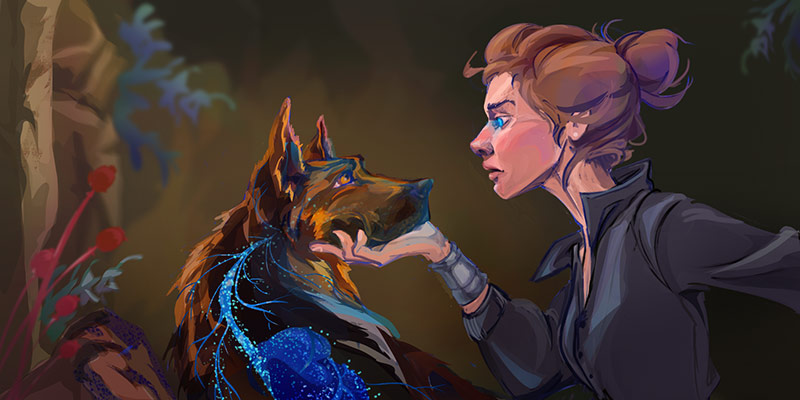
Something was wrong with Bear.
We had cut our way through the stalker tunnels. Our trail was littered with corpses, and we had just killed our fifteenth beast. It hadn’t gotten easier, not at all. I was so worn down, I could barely move. My body hurt, the ache spreading through the muscles like a disease, sapping my new strength and making me slow.
Bear stumbled again. I thought it was fatigue at first, but we had rested for a few minutes before this last fight, and it hadn’t helped at all. I had kept her from serious injury. She’d been clawed and bitten once, but the bite had been shallow, so it likely wasn’t the blood loss.
Bear whined and fell.
Oh god.
I dropped on my knees by her. “What is it?”
The shepherd looked up at me, her eyes puzzled and trusting.
I flexed, focusing on her body, concentrating all of my power on her. What was it? Blood loss, infection…
The faint outline of Bear’s body glowed with pale green, which told me nothing. I had to push deeper. I focused my power into a thin scalpel and used it to slice through the surface glow.
It resisted.
I sliced harder.
Harder!
It broke, splintering vertically into layers, and I punched through it. It was almost like falling through the floor to a lower level.
Bear’s body lit up with pale blue, the glow tracing her nerves, her blood vessels, and her organs. I had never before been able to do that, but that didn’t matter now.
Toxin. She was filled with it. I saw it, tiny flecks glowing brighter as they coursed through her like some deadly glitter. I had to find the origin of it. Was it from a stalker bite? No, the concentration of poison wasn’t dense there. Then what was it? Where was it the highest?
Her lungs. That fucking glitter saturated her lungs, slipping into her bloodstream with every breath. I had to go deeper. I pushed with my power. Before, it was like trying to slice through glass. Now it felt like punching through solid rock, and I hammered at it.
The top layer of the blue glow cracked, revealing a slightly different shade of blue underneath. I hit it again and again, locked onto the glitter with every drop of willpower I had.
The tiny specks expanded into spheres. What the hell was that?
I pounded on the glow, trying to enlarge it. The spheres came into greater focus. They weren’t uniformly round; they had four lobes clumped together and studded with spikes.
What are you? Where did you come from?
A flash of white cut my vision. I went blind. It lasted only a moment, but I knew I hit a wall. I wasn’t going any deeper. I would have to work at this level.
I blinked, trying to reacquire my vision.
My thighs were glowing with blue.
I jerked my hands up. Pale glitter swirling through my arms and fingers. This dust, this thing was inside me too, and I couldn’t identify it.
We were both infected, and it was killing us.
Panic drenched me in icy sweat. I wanted to rip a hole in my legs and just force the glitter out.
Bear whined softly like a puppy.
I was losing her. She trusted me, she followed me, and she fought with me, and now she was dying.
“You can’t die, Bear. Hold on. Please hold on for me.”
Bear licked my hand.
The urge to scream my head off gripped me. Wailing wouldn’t help. If only I could identify the poison.
Why couldn’t I identify it? Was it because it was inside us and it had become part of us? Or was I just not strong enough to differentiate it from our blood? It had started in the lungs, so we must have inhaled it.
I took a deep breath and exhaled on my hands.
There it was! A trace of the lethal glitter. I focused on it. The four-lobes spiked clumps, swirling, swirling… Something inside me connected, and I saw a faint image in my mind. The mauve flowers. We had been poisoned by their pollen.
I flexed harder, stabbing at the pollen with my talent. The tiny flecks opened up into a layered picture in my mind, and the top layer showed how toxic it was…
Oh god.
We were almost out of time. We needed an antidote. Now.
I strained, trying to access whatever power lay inside me, the same one that showed me the Grasping Hand and gave me the stalkers’ name. It didn’t answer.
Please. Please help me.
Nothing.
We would die right here, in this tunnel. I knew it, I could picture it, me wrapped around Bear, hugging her as we both grew cold…
No. There had to be an answer. We hadn’t come all this way to lay down and die. We did not kill and fight all these damn stalkers –
The stalkers. The stalkers went to the lake to drink. The flowers were all over the shore, but the stalkers had died because the lake dragon had torn them apart. The flowers didn’t poison them.
I jumped to my feet and ran to the nearest corpse. My talent reached out and grasped the body. There was pollen on the fur and on the muzzle and a faint smudge in the lungs, but none anywhere else. Not a trace in the blood. They were immune.
The poison had to be eliminated in the bloodstream. If it was purged in the liver or any other organ, there would’ve been traces of it in the blood vessels but there were none.
I flipped the stalker on its back, shaped my sword into a knife, and stabbed the corpse, slicing it from the neck to the groin. Bloody wet innards spilled out. I dug in the mush, pushing slippery tissue aside until I found the hard sack of the heart. I carved it out and pulled the bloody clump free.
Flex.
The heart glowed with blue. Toxic. It would poison us, too, but there was a slim chance we could make it. It was the difference of might-be-dead from the stalker heart or definitely-dead from the pollen. We didn’t have hours, we had minutes. The heart had to be the answer.
I put it on a flat rock and minced the tough muscle into near mush. I scooped a handful of the bloody mess and staggered over to Bear.
She was still breathing. There was still a chance.
I pried her jaws open and shoved a clump of the stalker mince into her throat. She gulped and gagged. I held her mouth closed.
“Swallow, please swallow…”
Bear gulped again. Yes. It went down.
“What a good girl. The best girl. One more time. Let’s get a little more in there.”
I forced two more handfuls into her and flexed. The concentration of pollen in her stomach dimmed. I had no idea if the immune agent in the stalker blood would spread or if it would be broken down by stomach acid. It didn’t matter. We were all out of choices.
Bear let out a soft, weak howl, almost a gasp. It must have hurt.
“I’m so sorry. I wouldn’t hurt you if there was any other way.”
If I ate the heart now, there was no telling what it would do to me. I could pass out right here, and we would both become stalker dinner.
About twenty minutes ago we had walked by a narrow stone bridge that spanned a deep cavern. There had been a depression at the other end, a little cave within the cave. I’d thought it would be a good place to rest, because the stalkers could only come at us one by one, but I had wanted to get out of the tunnels. At the time, it seemed better to just keep moving. It seemed like forever ago, but it had just happened. We had to find a place to hide, and that was the closest safe spot I could think.
I should be able to find the bridge again. I just had to follow the trail of bodies and make it there before the poison got me.
I picked Bear up. She felt so heavy, impossibly heavy.
I spun around and trudged back the way we came.
The post The Inheritance: Chapter 5 Part 3 first appeared on ILONA ANDREWS.
Tor Doubles #6: Barry B. Longyear’s Enemy Mine and John Kessel’s Another Orphan
 Cover for Enemy Mine by Maren
Cover for Enemy Mine by MarenCover for Another Orphan by Tom Kidd
The sixth Tor Double not only includes the two title stories, Barry B. Longyear’s Enemy Mine and John Kessel’s Another Orphan, but also includes an excerpt from Gwyneth Jones’s novel Divine Endurance. Divine Endurance was originally published in Britain in 1984 and in the U.S. as a hardcover by Arbor House in 1987. Tor was scheduled to publish a paperback edition of the novel in May of 1989, two months after this Tor Double hit the shelves. With the two title stories totaling only 158 pages, the decision was made to add a twenty page excerpt of the forthcoming novel.
Enemy Mine was originally published in Isaac Asimov’s Science Fiction Magazine in September, 1979. It won the Hugo Award and the Nebula Award, as well as the Locus poll. Enemy Mine kicked off Longyear’s “Dracon” series and was the basis for the 1985 film Enemy Mine, starring Dennis Quaid and Louis Gossett, Jr.
The year after the initial publication and success of Enemy Mine, Longyear published an extended version of the story, which has generally superseded the version that won the Hugo and Nebula Award. It is this revised version that is included in this volume.
Enemy Mine is set during a war between humans and the lizard-like Drac, both of whom see the other race as trying to impinge on their own nascent interstellar hegemonies. It is clear from the beginning that there is little communication between the races and the war has been taking place for quite some time and there is no end in sight.
When the novella begins, a human, Willis Davidge, and a Drac, Jeriba Shigan, have crashed on the planet Fyrine IV while a battle rages on in orbit above them. Seeing each other as alien and enemies, they continue in their attempts to kill each other, until they realize that the inhospitable nature of the planet means they have to work together in order to survive.
Over the course of a year, Jeriba and Davidge begin to understand each other and learn each other’s language. Jeriba taught Davidge about the Talman, the closest thing the Drac have to a religious text, as well as about their culture. The Drac are hermaphroditic and when Jeriba explains that it is expecting, the teaching opens up to the ancestor respect the Drac have for their hereditary line.
Had Longyear ended the story with the two enemies coming to terms with each other, and it is clear that Jeriba is more open to the idea of learning about humans than Davidge is with learning about the Drac, Enemy Mine would have been a typical science fiction story. However, the fact that Jeriba is expecting adds a twist to the story that elevates it.
When Jeriba dies in childbirth, it is up to Davidge to raise its child, Zammis, and protect it from the elements. Davidge does this to the best of his abilities, creating a person who is a mix of human and Drac philosophies and who loves the dangerous world upon which it was raised, even as Davidge continues to only see the dangers of Fyrine IV.
Eventually, rescue comes and Davidge finds himself back on an Earth following an armistice with the Drac. Trying to find work and living with his parents, he suffers the sort of disorientation many former soldiers find and is not fully able to fit into his society. When he realizes that despite the truce with the Drac, humans are still as prejudiced against the Drac as they had been during the war, Dravidge decides to attempt to rectify that by translating the Talman into English, although his primary goal is to earn enough money to travel to the Drac homeworld to see Zammis.
While Dravidge’s time with Jeriba and Zammis had taught him about the Drac and the philosophy espoused by the Talman, it gave him a very specific view of the Drac, specifically Jeriba’s own interpretation of Drac culture and philosophy. Upon his arrival at Draco, he learns that their society is every bit as complex and narrow minded as human society. His initial meeting with Jeriba’s father, Gothig, does not go at all as he expects and he learns that the Drac authorities can not be trusted to do the right thing.
Desptie the moment of truce following Dravidge’s rescue, it becomes clear that it is a temporary thing in Longyear’s world. The racial tensions and prejudices of the humans and Drac may be overcome on an individual basis, but they cannot be address on a societal level unless a new society, built apart from mainstream humanity or Drac culture, is allowed to be built.
Although Enemy Mine offers a roadmap to break the cycle of hatred, it does so with an understanding that it can only be done by disregarding the majority of people who may not be able to put aside the slights and atrocities, real or perceived, committed in the past.
I previously discussed Enemy Mine on September 3, 2019 as part of the “Golden Age of Science Fiction” series.
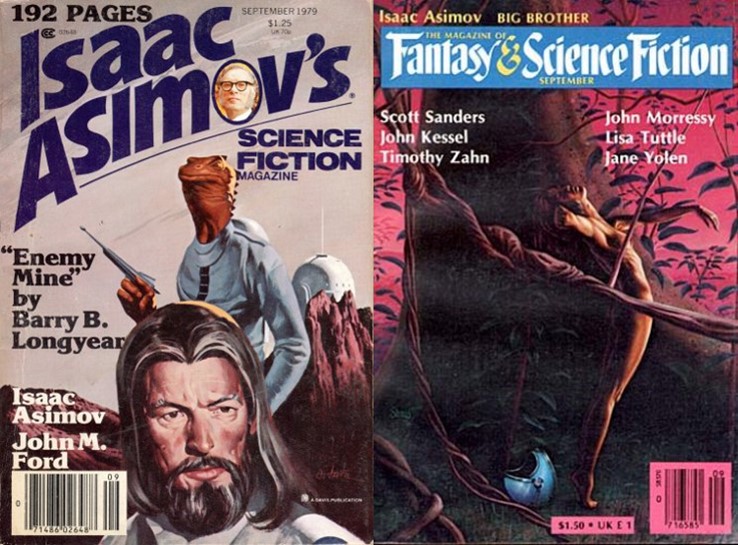 Isaac Asimov’s Science Fiction Magazine 9/79 cover by Vincent di Fate
Isaac Asimov’s Science Fiction Magazine 9/79 cover by Vincent di FateFantasy and Science Fiction 9/82 cover by Barclay Shaw
Another Orphan was originally published in F&SF in September, 1982. It was nominated for the Hugo Award and the Nebula Award, winning the latter.
Patrick Fallon has become unstuck in time, well, perhaps not, but there is a certain feel that he has given that he wakes up one morning and instead of finding himself working at the Chicago Mercantile Exchange he is on a sailing ship, with no memories of how he got there, but clear memories of his life in Chicago and his recent argument with his girlfriend, Carol.
However, Fallon belongs on the ship. The other sailors accept him and know his name. If they question his lack of knowledge of how do the he most basic tasks on the ship, they ignore their doubts, figuring he’ll work his way through it. And he does, with a small amount of help from shipmate Bulkington.
As he begins to figure out how to handle tasks, life on board the ships begins to gain a familiarity to Fallon, but not because he remembers life on the ship. Instead he begins to realize that he hasn’t slipped through time, but instead has slipped through realities, finding himself aboard the whaling ship Pequod, as described in Herman Melville’s Moby Dick.
Having read Moby Dick, Fallon knows that in the end the ship and its crew are doomed with the exception of Ishmael, who he can’t find among the crew. Although he entertains the idea that he may be fulfilling Ishmael’s role, Fallon decides he can’t rely on that hope for survival. After talking with Ahab and learning how much the captain is focused on killing his white whale, Fallon decides he needs to take matters into his own hands.
Fallon talks to other crewmen, including Starbuck, Stubbs, and Bulkington, trying to get them all to understand that Ahab’s focus threatens them all. While they may agree with Fallon, they also understand their place aboard the ship and can’t fathom the idea of mutiny, which is the only way to accomplish the action Fallon is calling for.
Even as he acclimatizes to life on board the Pequod, Fallon recalls his life in Chicago and yearns to return to the comfort and safety of life as a trader. His wife appears to be granted when he suddenly finds himself back in Chicago, preparing for a day of work, and finding that he is as lost there as he was when he first awoke on the Pequod. However, His two lives bleed into each other and Fallon realizes that whether he is in Chicago or the Pequod, the crew he has been living with are moving toward the inexorable climax of the novel which seemingly means Fallon’s death as well as the rest of the crew, with the exception of the enigmatic and undiscovered Ishmael.
Kessel appears to be having fun torturing his main character and the reader by showing them the parallels between the Pequod of Moby Dick and the Pequod of Another Orphan. Because the novel was written by Melville 130 years before Kessel’s story, the events of the story would seem to be set, but Kessel subverts that with the ideas, put forth by both Fallon and Ahab, that events can be fluid and are not predestined. While Fallon is hopeful that the destiny he sees can be averted, Ahab sees an outcome that involves the death of Moby Dick, but doesn’t necessarily mean the destruction of his ship or crew, and until that occurs, the results are undecided.
Fallon’s story is not neatly wrapped up. The final encounter with the whale is still in his future and Ahab is still his captain. Their future has not yet been written, but Kessel leaves them with a sense of dread that they won’t be able to avert the ending Melville has written for them and Fallon may never be able to turn his back on the Pequod and return to his life in Chicgao.
The cover for Another Orphan was painted by Tom Kidd. The cover for Enemy Mine was painted by Maren.
 Steven H Silver is a twenty-one-time Hugo Award nominee and was the publisher of the Hugo-nominated fanzine Argentus as well as the editor and publisher of ISFiC Press for eight years. He has also edited books for DAW, NESFA Press, and ZNB. His most recent anthology is Alternate Peace and his novel After Hastings was published in 2020. Steven has chaired the first Midwest Construction, Windycon three times, and the SFWA Nebula Conference numerous times. He was programming chair for Chicon 2000 and Vice Chair of Chicon 7.
Steven H Silver is a twenty-one-time Hugo Award nominee and was the publisher of the Hugo-nominated fanzine Argentus as well as the editor and publisher of ISFiC Press for eight years. He has also edited books for DAW, NESFA Press, and ZNB. His most recent anthology is Alternate Peace and his novel After Hastings was published in 2020. Steven has chaired the first Midwest Construction, Windycon three times, and the SFWA Nebula Conference numerous times. He was programming chair for Chicon 2000 and Vice Chair of Chicon 7.
Goth Chick News: Oh Deer – Bambi Goes Berserk in The Reckoning
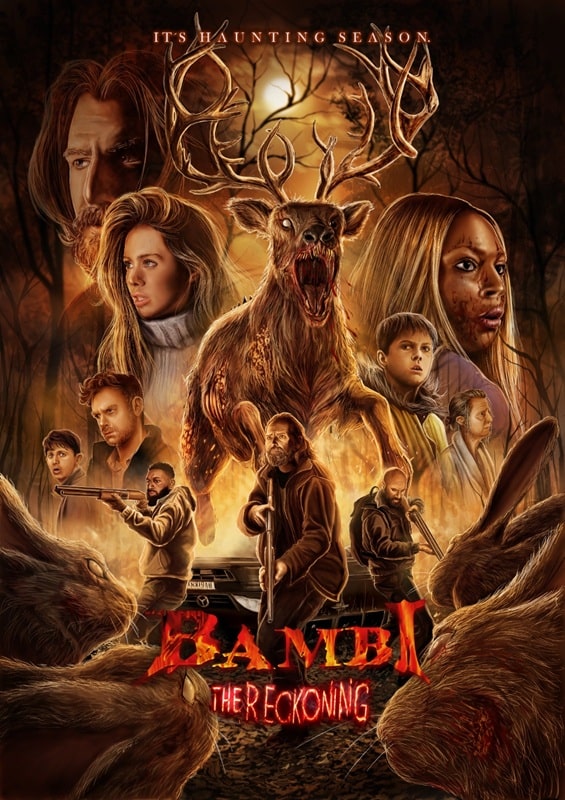 Bambi: The Reckoning (ITN Studio, July 25, 2025)
Bambi: The Reckoning (ITN Studio, July 25, 2025)
File this one in the “Why the F?” folder.
Bambi: The Reckoning is a British indie horror flick directed by Dan Allen and written by Rhys Warrington. It marks the fourth disturbing entry in The Twisted Childhood Universe (TCU), which brought us Winnie-the-Pooh: Blood and Honey and is now turning Felix Salten’s beloved deer into a forest-dwelling force of vengeance.
The Brits must really hate us.
Starring Roxanne McKee, Tom Mulheron, Nicola Wright, Samira Mighty, Alex Cooke, and Russell Geoffrey Banks, The Reckoning twists the tale of Bambi into a blood-soaked revenge story. The premise? A grieving, mutated Bambi — yes, you read that right — goes on a rampage after his mother’s untimely demise, targeting a hapless mother and son caught in his antlered crosshairs.
Though I’m not suggesting you do it, here’s the trailer if you want a look.
The project was first teased back in November 2022, when Bambi: The Reckoning was announced as the latest horror romp to traumatize a generation raised on wholesome animated classics. Helmed by Jagged Edge Productions, the film takes inspiration from the eerie creature design in Netflix’s The Ritual, because apparently, we all needed Bambi to double as nightmare fuel. Producer Scott Jeffrey described the flick as “an incredibly dark retelling” of Salten’s 1928 book, with our once-gentle deer transformed into a “vicious killing machine that lurks in the wilderness.”
Production kicked off in London on January 6, 2024, and filming wrapped just twenty days later — let me show you my shocked face.
Bambi: The Reckoning is set to hit U.S. theaters on July 25, 2025, so mark your calendars and prepare to binge-watch the Disney Channel that day instead.
Life and Other Dishes
I have a weird feeling this week. It’s like I overlooked something or forgot some bill, and I keep checking to see what I missed and can’t find it. And it’s Thursday already. How? How?
Gordon’s surgery is next week. They will clean the scar tissue from his shoulder, and he will have to immediately go into physical therapy. If we miss an Inheritance installment, that’s probably why. Hopefully we will stay on track. I am going to try to get the next three posts lined up so Mod R can just click Publish and then do the hard work of moderating.
To people asking about craft projects: I haven’t been able to knit or crochet because the hands are not cooperating. Especially the wrist rotation with the hook is a no go. I haven’t been able to see a neurologist either. I can’t even get on the schedule. It is a bit frustrating. Okay, it’s very frustrating.
I need to get back to workouts. I chickened out this week because we are having a heat wave. It’s overcast today and it cooled off to 96, wooo! We were at 101F (38C) yesterday. It’s hot and humid. I think lifting weights was helping a little or maybe it’s my imagination.
Since I can’t knit or crochet, I’ve been trying to play a little bit of computer games, although I have to limit that, too. Both Planet Crafter and the Enshrouded are releasing updates: the Enshrouded one already came out, and the Planet Crafter is coming on 16 or 19th.
I have been playing the Humble expansion in Planet Crafter in preparation for the expansion. It’s a neat game where you are a convict dropped off on a barren rock of a planet, and the only way to escape is to terraform it into a garden planet.
Right now I’m breeding butterflies in different colors. The game is pretty, although Humble isn’t my favorite. I like a lot of water at my base locations, and the centrally located lake is more like a puddle.
 My butterflies!
My butterflies!
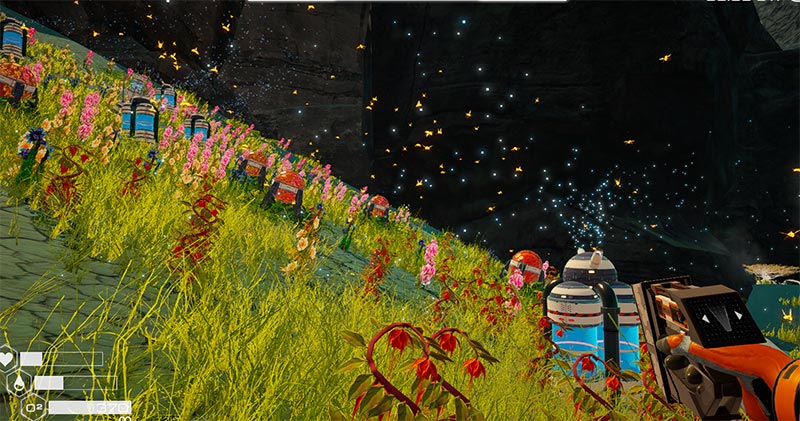 My bees!
My bees!
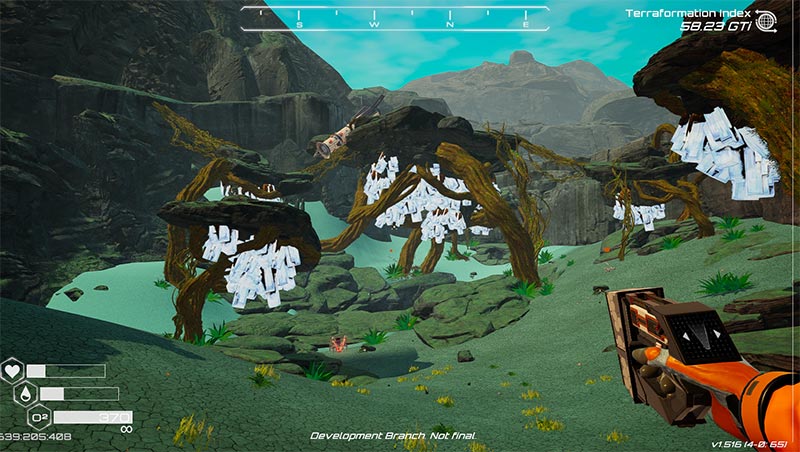 Zeolite crystal mining site
Zeolite crystal mining site
 Cool Sinkhole. There is a cave behind the large waterfall.
Cool Sinkhole. There is a cave behind the large waterfall.
The new update is supposed to let you terraform more moons in this alien solar system. I’m excite!
Finally, we have gotten a couple of puzzled comments – mostly from international readers – regarding the widespread use of dishwashers in US. About 75% of US households have them. They are convenient, and we are encouraged to purchase them because they use less water. A typical modern dishwasher will use 3-4 gallons for a load of dishes, while washing the same load by hand uses 15-27 gallons. It also saves energy, because most people wash their dishes in hot water and heating that water adds up. To that one commenter who wondered why an off-the-grid home in the Southwest would need one – their water is likely limited. They are trying to conserve their resources. A small dishwasher can ran off solar, and washing dishes is not optional.
To the person who is now vigorously typing how their handwashing never uses that much water: Having a dishwasher doesn’t make you lazy, not having one doesn’t make you a dirty planet polluter. It’s a convenient appliance. Some people have space for it, some don’t, and there is no reason to have a moral superiority battle over it.
I’m trying to figure out what to read next. LitRPG is my new military SF. I usually read outside of the genre I’m working on and I’m unlikely to ever write a strict LitRPG. I am sadly out of the Azarinth Healer. I have Bushido Online in my library for some reason. Maybe I will try that one next.
The post Life and Other Dishes first appeared on ILONA ANDREWS.
Spotlight on “Ecstasy” by Ivy Pochoda
Ecstasy is a deliciously dark horror reimagining of a Greek tragedy, by Ivy Pochoda, and…
The post Spotlight on “Ecstasy” by Ivy Pochoda appeared first on LitStack.
Review: Level: Ascension by David Dalglish

Buy Level: AscensionRead our review of Book 1, Level: Unknown
FORMAT/INFO: Level: Ascension was published by Orbit Books on May 13th, 2025. It is 400 pages long and available in ebook, audiobook, and paperback formats.
OVERVIEW/ANALYSIS: In order to save his world, Nick will have to end another. With a large black disc traveling closer and closer to his research station, Nick spends nearly all his time in the fantasy world of Yensere, a digital simulation created by a mysterious alien artifact. In Yensere, the god-king Vaan has frozen a similar looking black sun in the sky; this has prevented an apocalypse in Yensere but disrupted the patterns of time and nature in a way that seems to be destroying the world anyway, if more slowly. If Nick is to understand the doom that approaches his people, he will have to kill the god-king Vaan and unleash disaster on Yensere so that he can gain whatever knowledge he can. But before then, he'll have to defeat the god-king's chosen champions - a task that will come with a devastating cost.
Level:Ascension continues to expand its world in interesting ways, but the plot was overwhelmed by the sheer number of fight sequences. On the plus side we get to learn more about Frost, her origin, and how her sister went missing. It added some much needed personal stakes to the story beyond the also important "save the world." I also appreciated the teases we get indicating that Yensere isn't the only digital world contained within the alien artifact.
But these small nuggets of clues and character insight were overwhelmed by fight after fight after fight. On the one hand, I understand that a LitRPG is going to have a lot of battles in it, especially when it's inspired by a game like Dark Souls. Going from one epic fight to another is literally what that game genre is all about. But the more fights you have with everyone wielding awe-inspiring powers, the less exciting each encounter feels.
Don't get me wrong, in a vacuum the individual fights are impressive. As always, this author delivers a powerhouse finale that is a great set piece with personal stakes. But I could have used one or two fewer fights and a little more time expanding on some of the other characters. Sir Gareth, for instance, was a strong part of book one, but gets a bit left by the wayside in this sequel, a hazard of several new characters entering the playing field.
CONCLUSION: For some of you, hearing that Level: Ascension is chock full of impressive fight scenes is going to be fantastic news, and I encourage you to go give this series a try! For me, while I enjoy the overall concept of this simulated world, I had a bit of trouble finding the momentum in this particular outing. Perhaps with everything coming to a head in upcoming Level: Apocalypse, I'll find that momentum once more.
Magic Triumphs Sample Bonanza
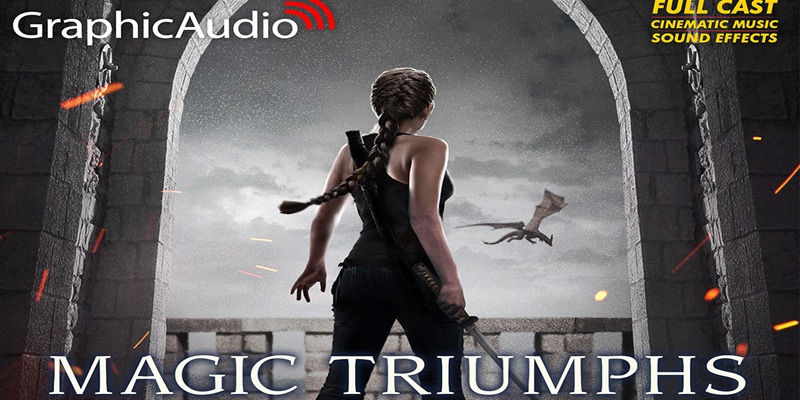
Magic Triumphs, the final novel in the Kate Daniels main series, will be available in full dramatized audio from Graphic Audio on the 20th of May.
That’s eleven instalments (including Magic Gifts) of determination, heykittykittyness, blood, grit, immortal apple pie, and Atlanta mayhem, each one adapted with a full cast, original score, immersive sound effects, and enough snark to satisfy even Kate herself.
If you’ve never listened to a Graphic Audio adaptation before, it’s a full production, a “movie in your mind,” with actors voicing every character. Michael Glenn sacrificed vocal chords to roar like Curran. Nora Achrati basically became Kate, and adapted and directed every book with the same love we have for our favorite gal. KenYatta Rogers would get even Jim’s seal of approval. And the fights? You hear every bone crunch and magic burst.
Next Tuesday, the series will be complete, after a journey that became in 2023. Small Magics will be released with all the KD extras as well as original works like Retribution Clause, Grace of Small Magics, Of Swine and Roses on June 12th.
But wait … completed series doesn’t mean it’s OVER! Kate would never!
Exciting AnnouncementThe Wilmington Years series AND Blood Heir will both be getting the GA treatment, with Nora at the helm, in the first half of 2026!
Thank you to everyone who chalantly pressured fluffily suggested to GA that they continue adaptations in the Kate world and helped to make them audio cult classics.
The Horde is powerful, the Horde is mighty. The Horde, as usual, gets things done.
Until then, we’re celebrating with SIX exclusive audio clips from Magic Triumphs, more sample extravaganza than we’ve ever been able to share before!
A rude awakening:
Fear the Greeks, especially when they’re at your door in a panic:
I love him, you love him, but especially I love him, the best Dark Volhv of all:
Dum-dum-dum-DUUUUUUUMMM! The entrance, the drama, the llama!
It’s an impossible choice, but one of the best scenes of the series, I think. GO, DADDY!
Nobody likes nonconsensual dragons, dude!
Now it’s your turn: tell me which moment you’re most looking forward to from the dramatized Magic Triumphs?
The post Magic Triumphs Sample Bonanza first appeared on ILONA ANDREWS.
Writ in Water: V.E. Schwab’s The Invisible Life of Addie LaRue
How many times have you heard (or even repeated) the old adage, “Be careful what you wish for?” Of course it’s a cliché, a commonplace beloved of parents and primary school teachers the world over, but such chestnuts sometimes actually contain the distilled wisdom of the human race, and you ignore them at your peril, as is demonstrated (or not, maybe) in Victoria Elizabeth Schwab’s 2020 dark fantasy, The Invisible Life of Addie LaRue. It’s a spirited, stimulating read that gives you something to think about.
The story begins in a small French Village, Villon-sur-Sarthe, on a summer evening in 1714. A young woman named Addie LaRue is “running for her life.” Her family has affianced her to an inoffensive but crushingly dull young man. Addie, however, doesn’t want her life to be yet one more colorless copy of the bland existence that her mother (and her mother before her, and her mother before her, and her mother before her…) has led.
Addie has occasionally gone with her carpenter father (who she is closer to than she is to her unsympathetic mother) on business trips to a neighboring town, and these all-too-rare glimpses of the world outside have sparked something in the young woman. She wants to see Paris, she wants to see the world, she wants to go where she will and love who she will. Looking around the well-known, changeless streets of her home, they look more and more like the bars of a prison; she knows that’s not what she wants. She knows she wants more.
Addie’s dreams and ambitions have been (somewhat equivocally) encouraged by an old woman of the village, Estelle Magritte, who is considered by some to be a witch. Estelle talks to Addie about the ancient, elemental, unpredictable gods of the fields and the forest, but she gives the girl one piece of very serious advice:
The old gods may be great, but they are neither kind nor merciful. They are fickle, unsteady as moonlight on water, or shadows in a storm. If you insist on calling them, take heed: be careful what you ask for, be willing to pay the price. And no matter how desperate or dire, never pray to the gods that answer after dark.
It’s counsel that Addie might have been better off heeding.
Fleeing her wedding, Addie plunges into the woods; as she goes deeper into them, the voices of her pursuing family grow fainter and fainter until they disappear. Addie falls to the ground, exhausted, and desperately begins to pray to the only source of help that she can think of, the old gods that Estelle has told her about, but more time has passed than she thinks; she doesn’t realize that the sun has set and that she is calling into the darkness.
Her plea is answered by one of the capricious, compassionless gods that Estelle warned her against, and though he may be inhuman, he at least has an ironic sense of humor, as he comes in the form of the fantasy lover that the lonely Addie “has conjured up a thousand times, in pencil and charcoal and dream.”
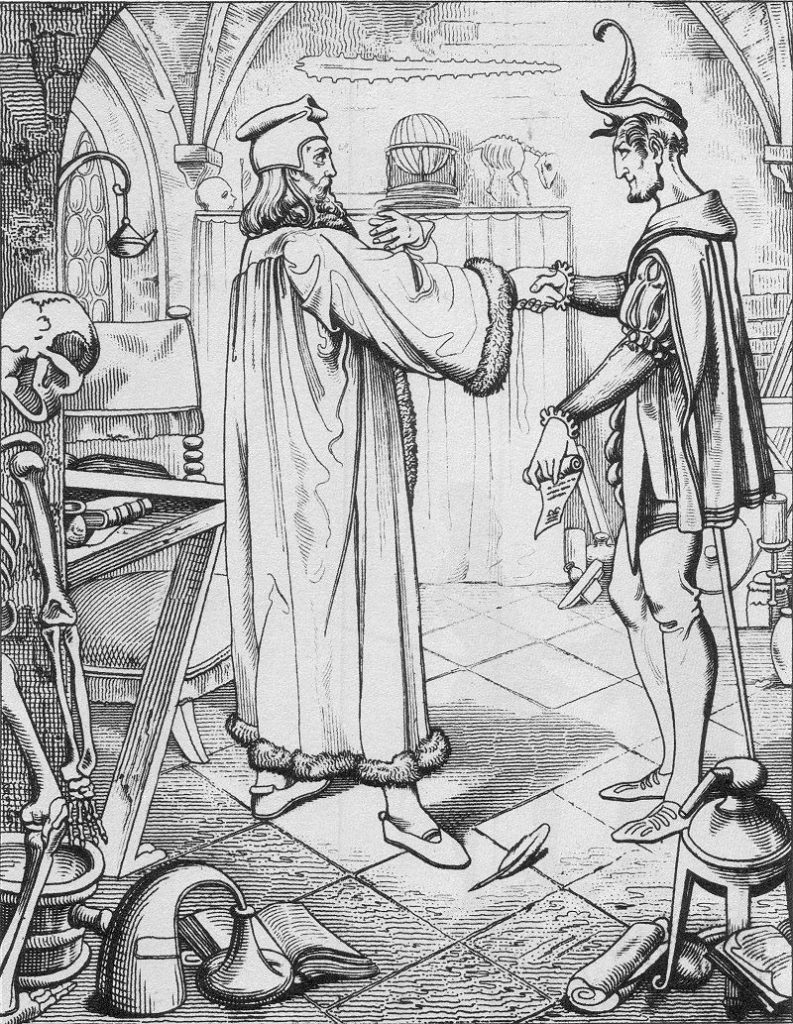 Congratulations — you are now the proud owner of a Ford Fiesta! All it will cost you is your soul!
Congratulations — you are now the proud owner of a Ford Fiesta! All it will cost you is your soul!
After the being asks if she is prepared to pay the price for his services, Addie makes the fatal promise, “I will pay anything.” The entity, be it god, devil, or something so entirely other that it cannot fit into either of those common categories, asks her why she is willing to do this. The girl replies with what amounts to her manifesto:
“I do not want to belong to someone else,” she says with sudden vehemence. The words are a door flung wide, and now the rest pour out of her. “I do not want to belong to anyone but myself. I want to be free. Free to live, and to find my own way, to love, or to be alone, but at least it is my choice, and I am so tired of not having choices, so scared of the years rushing past beneath my feet. I do not want to die as I’ve lived, which is no life at all. I –”
The being (which she will soon name Luc) cuts her short. He’s not interested in what she doesn’t want. Can she tell him what it is that that she does desire? That’s easy; Addie wants more time. Luc puts the wish into words for her — “You ask for time without limit. You want freedom without rule. You want to be untethered. You want to live exactly as you please.”
“Yes,” Addie says… but Luc declines the deal. After all, what’s in it for him? He gives her life unending, and he gets nothing? It’s hardly fair. And in that moment, Addie hears again the voices of her family and the other villagers, searching for her, growing louder, coming closer. And in that last moment, she recklessly stakes everything. “You want an ending,” she says. “Then take my life when I am done with it. You can have my soul when I don’t want it anymore.”
Deal.
The rest of the book shows us what kind of life Addie has purchased, and it does so with a forward/backward structure that alternates chapters showing that life in the eighteenth, nineteenth, and twentieth centuries (she spends most of the early eighteenth-century chapters discovering exactly what sort of covenant she has entered into), and chapters set in New York City in 2014.
What is the nature of the bargain Addie has made? (Of course, Luc’s deal comes with small print — there’s always small print.) As is common in such transactions, it soon becomes clear that Luc has given her exactly what she asked for. She wanted complete freedom, a radically unfettered life; she wanted no obligations to anyone, and her “benefactor” has found the perfect way to grant her wish.
Addie is free to go where she will, free to do what she wants, free to spend her time in the company of whomever she pleases, and people are drawn to the beautiful, bewitching young woman with the constellation-like pattern of seven freckles on her face. They love her when they’re with her. But when she leaves the room for more than a few minutes, or when they do, or when they fall asleep…
They completely forget her; she vanishes from their minds and memories as thoroughly as if she had never existed. In an especially painful twist, people are unable to even speak her real name.
As the years pass and Addie travels far and wide, she leaves her narrowly circumscribed life in her stultifying little village far behind, and she indeed sees the world — but the cruel nature of her bargain makes it impossible for the world to see her. She finds herself living a rootless, utterly transitory existence which is, in the words of John Keats’ pathetic epitaph, “writ in water.”
Through all these restless centuries, Addie lives by theft (which bothers her, but what else can she do), finds temporarily vacant houses or apartments to stay in for a day or a week, and establishes relationships as transitory as the lives of mayflies. For the first few decades, Luc appears every year to see if Addie is ready to surrender her soul. She always refuses, even as she finds herself looking forward to these visits — who else can she have a real conversation with? Luc’s visits eventually become much more sporadic (despite the hints of a growing and ambiguous attraction between the two, especially on Luc’s part; perhaps it is not good for even a god to be alone). Neither the human nor the inhuman are in a hurry; after all, they both have nothing but time.
Even in the midst of her exile, Addie takes heart from knowing that she has managed to leave some subterranean traces in the world after all, in the works of artists she has briefly known. Luc has been unable to prevent a ghostly record of Addie from appearing in a painting here, or in a song there. This helps her to hang on despite her unassuageable weariness. (That, and she’s just damned stubborn.)
The story makes a major shift in the second half of the book, when, in present-day New York, Addie meets a young man named Henry who works in a used bookstore. He is the one Addie has been waiting hundreds of years for; miraculously, he can remember her. (Addie discovers this when she tries to steal a book.)
Addie and Henry quickly fall in love, or at least, Addie sees that as a real possibility. (For her, he’s the only game in town.) But why is he different? Why can he remember her? The answer turns out to be simple — he, too, has made a deal, and is therefore living outside the boundaries of normal human existence.
Henry’s dilemma was the opposite of Addie’s — the youngest son of a prosperous, successful family, he always felt overlooked, ignored, invisible. No one ever saw him for who he really was. When he proposes to a young woman he has fallen in love with, she turns him down, making it clear that he’s nice and all that, but ultimately he’s not all that important to her. Shattered, Henry decides to commit suicide, but before he can complete the act, Luc appears with an offer: instead of being a person people see through, Henry will become a man no one can miss. Whenever anyone looks at him, they will see whatever they most desire. To everyone he meets, he will be the most important person in the world.
You see the problem, don’t you? Henry, of course, doesn’t, and he accepts the deal.
Now when people look at him, speak to him, have sex with him with glaze-eyed delight, they’re not really seeing him at all; they’re seeing an embodied fantasy that has nothing at all to do with the actual Henry Strauss, and the young man ultimately finds himself more even isolated and desolate than he was before.
This why Henry can remember the ephemeral Addie and why Addie can see the actual Henry — the bargains that they struck perfectly complement each other; their hells dovetail seamlessly.
One difference, though, is that Henry didn’t drive a very hard bargain; his contract isn’t open-ended, and when he meets Addie, the bill is about to come due. Henry has just over a month to live.
A few days before Henry is to die, Luc appears to Addie for the first time in thirty years. Does he know that he finally has her where he wants her? Maybe so, because Addie then finds out the terms of Henry’s contract, and having at last found someone she can willingly sacrifice herself for, she proposes a new bargain: she asks Luc to give Henry (who is “the one piece of her story that she can save”) his life back.
If Luc does this for her, Addie tells him, “I will be yours, as long as you want me by your side.”
Done.
The story ends two years later with Addie browsing in a London bookstore. She hears a customer ask for a copy of a hot new novel that’s making quite a stir. Written by an anonymous author, it is titled The Invisible Life of Addie LaRue.
Finding a copy herself, Addie tremblingly looks at the dedication page; it bears just three words: I Remember You.
Addie knows then that she has won her gamble, and when Luc appears and they walk out of the bookstore together, she thinks that the god who seemingly brought her to bay has been too clever by half. She has an unlimited amount of time in front of her, all the time in the world, time enough to work on Luc as he worked on her, time to “ruin him,” to “break his heart,” to “drive him mad, drive him away.” All the time there is, to make him willingly “cast her off.”
Then, and only then, Addie LaRue will have what she desperately desired so long ago. Finally, she will be free.
The Invisible Life of Addie LaRue is an engaging and highly imaginative book, but I do have a couple of quibbles. Addie’s discontent and (especially) the way she thinks about it and acts on it seem more like that of someone born at the end of the twentieth century than of someone born at the end of the seventeenth. Truly entering into the thought-world of a person of such a radically different era is a difficult task (perhaps especially so in our highly “presentist” age) and I can’t say that Schwab has entirely pulled it off. (I also think that kind of portrait wasn’t something she was really aiming at.)
Also, I was less than enthralled with the second half of the book’s “current-day” sections, which largely became one long episode of Young Brooklyn Romance, which, if it isn’t a hit new Netflix series, probably soon will be. In any case, it’s not the sort of thing that winds up at the top of my watch list. With the entrance of Henry, the book moves from things I’m more interested in (explorations of what freedom is and what it’s for, and of the relationship between community and identity — to what extent do we even exist except in relation to other people?) to something I’m less interested in (urban love among the achingly trendy). I say this understanding that I’m not a part of the target demographic of either the novel or the hypothetical show — and by the way, if anyone uses my title, they had better pay me.
Those complaints aside, the story Schwab tells is consistently engaging and entertaining, and at times even thought-provoking. The Invisible Life of Addie LaRue gains much of its power from being a lively new variant on a very old tale and by maintaining its connection with countless myths and stories that have gone before; the novel contains echoes of Faust, The Picture of Dorian Gray, The Wandering Jew, The Flying Dutchman, The Devil and Daniel Webster, and Peter Pan, to name just a few, and Addie can stand unembarrassed in their august company.
Two more recent stories that Addie LaRue also reminded me of are Lolly Willowes, Sylvia Townsend Warner’s 1926 novel of a woman who becomes a witch and sells her soul to the Devil in order to do exactly what Addie wanted — live her own life. Warner was a major writer in many different modes and Lolly Willowes is a masterpiece of double-edged irony, but even though Schwab’s book operates on a less profound level than Warner’s, it’s still not a stretch to speak of them both in the same breath.
Also, Luc strikes me as being at least a cousin of that malevolent aristocrat of Faerie, the Gentleman with the Thistle-Down Hair of Susanna Clarke’s wonderful Jonathan Strange and Mr. Norrell, though the Gentleman is frightening in ways that Luc can’t begin to match. (No person in their right mind would contemplate for an instant having a relationship, romantic or otherwise, with the Gentleman.)
Reading The Invisible Life of Addie LaRue and thinking about the questions it raises brought to mind something that Carl Jung, the founder of analytical psychology, once wrote:
People do not realize just how much they are putting at risk when they don’t accept what life presents them with, the questions and tasks that life sets them. When they resolve to spare themselves the pain and suffering, they owe a debt to their nature. In so doing, they refuse to pay life’s dues and for this very reason, life then often leads them astray. If we don’t accept our own destiny, a different kind of suffering takes its place… One cannot do more than live what one really is. And we are all made up of opposites and conflicting tendencies. After much reflection, I have come to the conclusion that it is better to live what one really is and accept the difficulties that arise as a result — because avoidance is much worse.
Addie challenges the status quo and pushes the boundaries of freedom and in doing so, she gets more than she bargained for… or does she? In making her initial deal, is she avoiding her destiny or accepting it? It’s possible to come down on either side of the question. It wouldn’t surprise me if one of these days, Schwab writes a sequel that gives us a more definitive answer.
I’ll definitely be there for it… but the world is wide and there’s no limit to places you can set a book, so can we stay out of Brooklyn? Please? I’d give almost anything…
 Abandon all hope, ye who enter here
Abandon all hope, ye who enter here
Thomas Parker is a native Southern Californian and a lifelong science fiction, fantasy, and mystery fan. When not corrupting the next generation as a fourth grade teacher, he collects Roger Corman movies, Silver Age comic books, Ace doubles, and despairing looks from his wife. His last article for us was Life Lessons from David Cronenberg

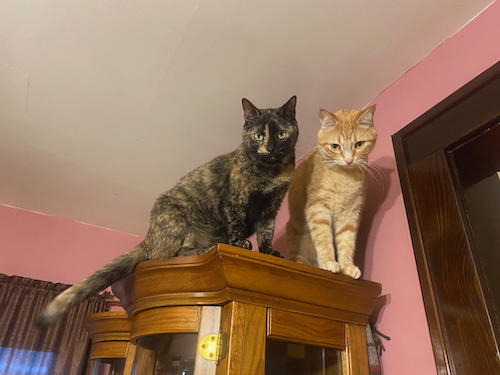
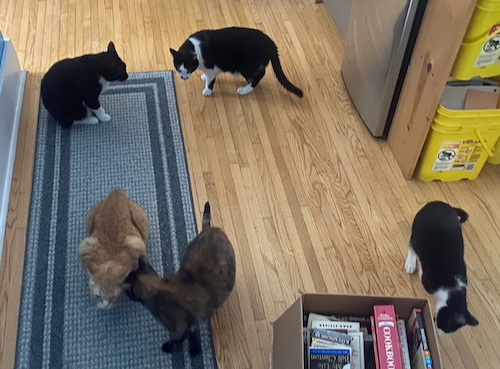

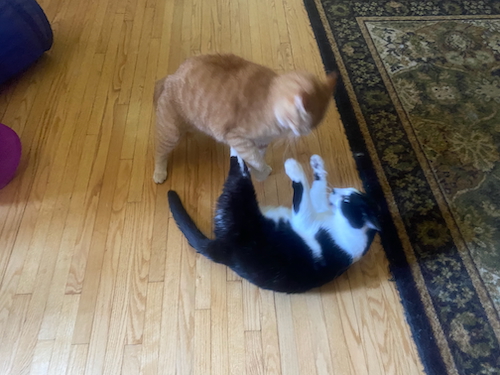
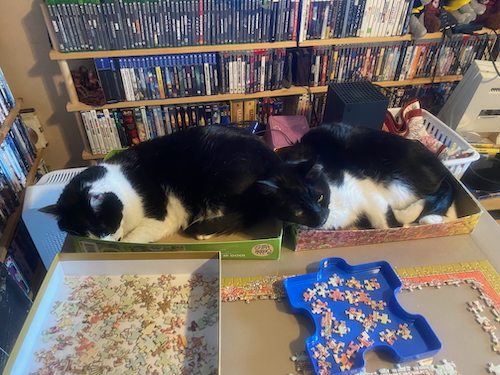
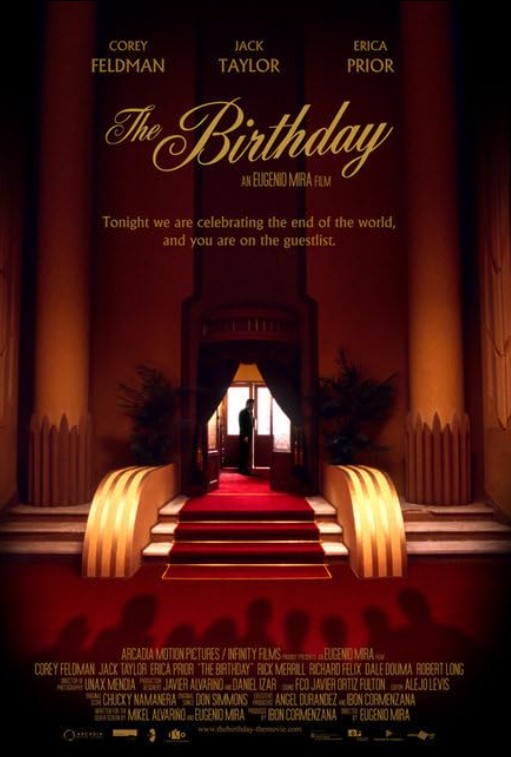
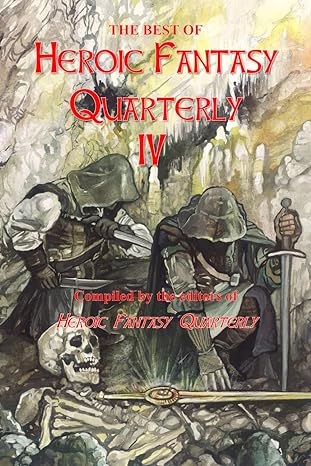
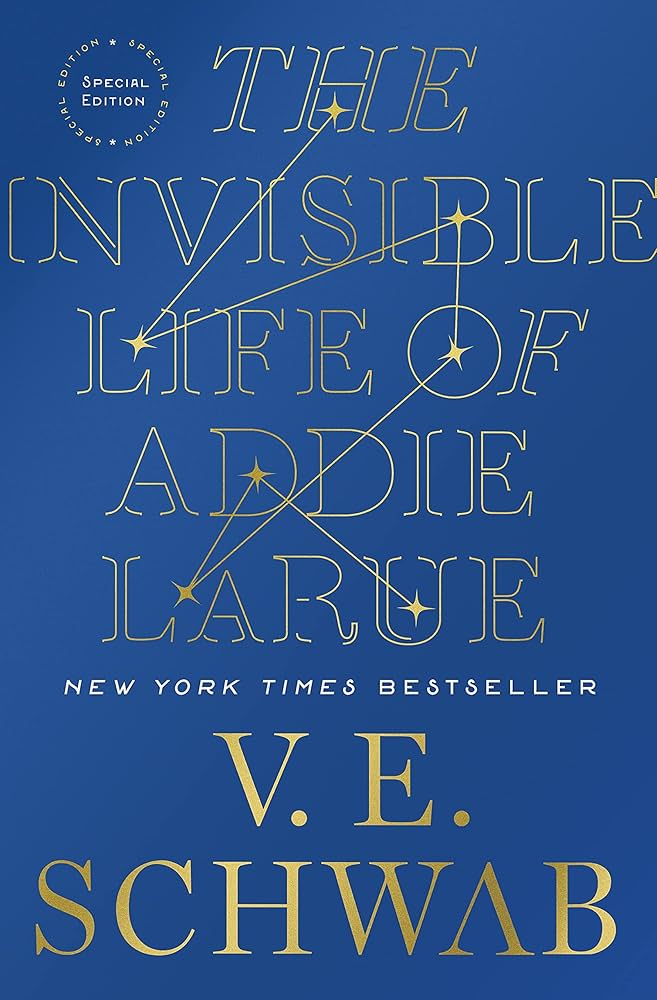


Recent comments